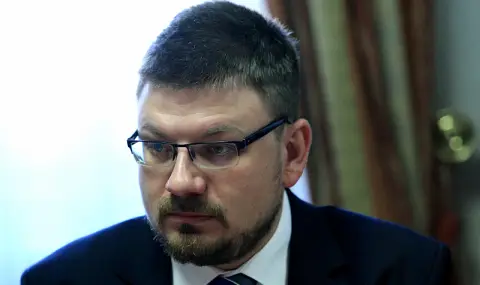For the dynamics of political processes in Bulgaria, it is good that we know the date of the next parliamentary elections. This gives some clarity and significance because at some point there will be accountability for how state power is exercised, hopefully by a regular government and not an ad hoc government to push through the State Budget Act, which is very important about how taxpayers' money will be spent. And accordingly, whether Bulgaria will have the will to move closer to the Eurozone or not. Whether the composition of a large part of the constitutionally established bodies and regulators will be filled.
This explained to “Focus" Ivan Bregov, legal expert at the Institute for Market Economy (IPI).
According to him, there is currently an empty space and a time in which populism is at its peak. "Populism is extreme and calls into question basic values that, after the end of the totalitarian period, people on the left, and on the right, and in the patriotic spectrum and in the populist spectrum, have not questioned. This period shows an immaturity and a strange lust of the electorate that we give a mandate to such political nothings, forgive that.
Civil organizations and their role as a natural critical opposition: "There are not many models with which they can exist, now one has been adopted in which any Bulgarian citizen or several individuals can register an association or foundation with which to occupy some part of public life, to be a corrective to the power or to achieve their own, self-important goals. The Bulgarian state from 1947 to 1951 actually confiscated the property of all civil organizations then, first with a Freedom Act, absolutely everything that could be taken away as savings and material assets of the Bulgarian associations and foundations was taken.
And finally, with the State Budget Act of 1951, absolutely everything is taken away down to a penny. In the 1990s, quality restitution and primacy during the tsarist era of associations and foundations was not carried out. If this was done, if there was a public fund into which these funds would enter and they were distributed on a competitive basis through the Law on Non-Profit Legal Entities, we could have "Bulgaria for Bulgaria". These public funds should be spent by the Bulgarian citizens, so that they can be a corrective to the authorities and achieve their important, significant goals," Ivan Bregov pointed out.
“My analysis shows that a large part of the property that was confiscated by the Bulgarian state in 1947-1951 has not been restituted. And no mechanism has been found to turn all this property into a public fund with which to finance Bulgarian non-governmental organizations on a competitive basis. At the moment, there are texts in the Law on Non-profit Legal Entities that provide this opportunity, but a firm long wandering - more than 2 years in the commissions of the National Assembly and at certain meetings of this Civic Council did not lead to having a real way, how through the state budget to guarantee minimal financial participation of the state in these processes.
The model “Bulgaria for Bulgaria" was historically possible, is still possible to this day, but it has not manifested anyway. We must not forget that whoever attempts to limit the right of association enters into a concrete clash with two constitutionally enshrined values. One is that citizens satisfy their needs as they see fit, as they wish to unite - political formations, civil associations and formations. This contradicts our right to free thinking and conviction, which no one should take away from us through legal actions as Bulgarian citizens", noted the expert.
According to his words, power concepts are brought to the fore, the waving of prohibitions in front of our society, which come into conflict with fundamental orders after the Second World War. "Putting out lists of teachers to be declared an enemy element is a sign of severe fascism that we must not allow to be acceptable to our society and must be opposed while we can. The "Bulgaria for Bulgaria" model has been lost irretrievably because the solidarity between us has been lost, which could have an institutional appendage, some format in which a large part of the people could be involved. When the tsarist Bulgarian elite left their property, the state issued decrees and laws with which it accepted this wealth.
Then she made it possible for everyone to enjoy it. This model could have been preserved and further developed, thus fostering a special type of culture of solidarity under public rules, clear and accessible to all, how to do it. The current leaders for the most part do not act like that.
The basis of public political life should be things that our representatives in the National Assembly want to achieve together, despite the political fights among themselves and things that they should never allow, and accordingly set clear boundaries with whom, what they wouldn't negotiate on. In the West, political enemies are also uniting on the empty nationalist element that pollutes the political environment, I think this is too important", concluded Ivan Bregov.
